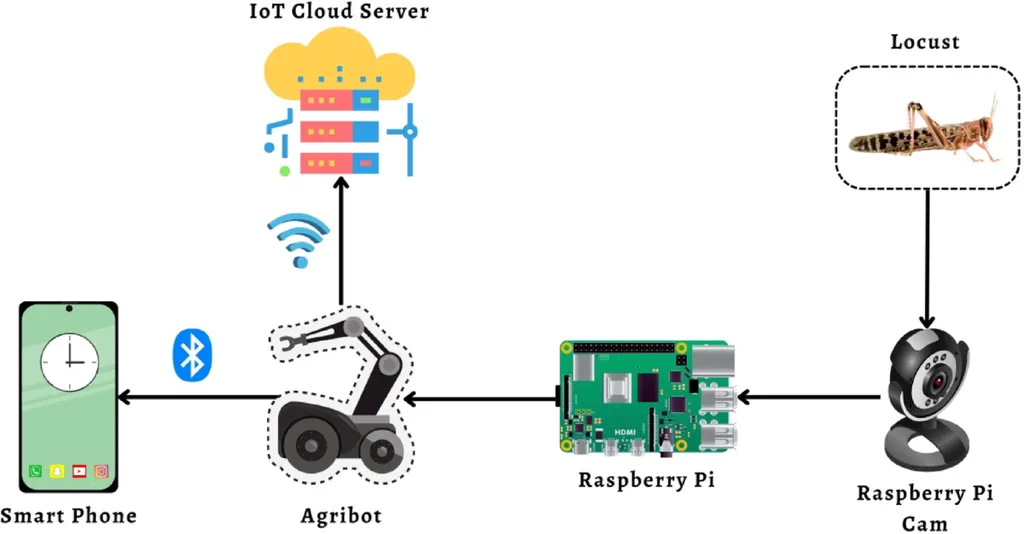In the relentless battle against agricultural pests, a new ally has emerged from the realm of technology. Researchers have developed an AI-powered smart Agribot designed to detect locusts in farmlands, leveraging the power of the Internet of Things (IoT) and deep learning. This innovative solution, detailed in a study published in *Scientific Reports*, promises to revolutionize pest management and boost agricultural productivity.
The Agribot, a marvel of modern engineering, integrates IoT sensors, a centralized Android application, and an IoT cloud server to automate the monitoring of agricultural fields. The system employs advanced machine learning (ML) and deep learning (DL) techniques, including pre-trained Convolutional Neural Network (CNN) models and conventional ML classifiers. The researchers also utilized nature-inspired algorithms like the Artificial Bee Colony (ABC) and the SVC feature selector to enhance the system’s accuracy.
The study, led by Mana Saleh Al Reshan from the Department of Information System at Najran University, achieved remarkable results. The highest accuracy in locust detection was recorded at an impressive 99.51%, using the VGG19 pre-trained CNN model with Logistic Regression (LR) and the SVC feature selector. The Agribot demonstrated efficient operation in real field conditions, with live video streaming and a maximum speed of 0.3048 m/s. The system also received a high System Usability Scale (SUS) score of 86%, indicating its user-friendly design.
The commercial impacts of this research are substantial. Locust infestations can devastate crops, leading to significant economic losses for farmers. The Agribot offers a proactive solution, enabling early detection and timely intervention to prevent widespread damage. “This technology can be a game-changer for the agriculture sector,” said Al Reshan. “By automating the detection process, we can reduce the need for manual labor and chemical pesticides, making farming more sustainable and cost-effective.”
The Agribot’s success in real-time locust detection opens up new possibilities for future developments in agricultural technology. The integration of IoT and AI in farming practices can lead to more efficient resource management, improved crop yields, and enhanced sustainability. As the technology evolves, we can expect to see more sophisticated Agribots capable of detecting a wider range of pests and environmental factors, further optimizing agricultural operations.
While the study identified some limitations during implementation, the overall feasibility of the system is promising. The Agribot represents a significant step forward in the fight against agricultural pests, offering a scalable and efficient solution for farmers worldwide. As the technology continues to advance, we can look forward to a future where smart Agribots play a crucial role in ensuring food security and sustainable agriculture.

